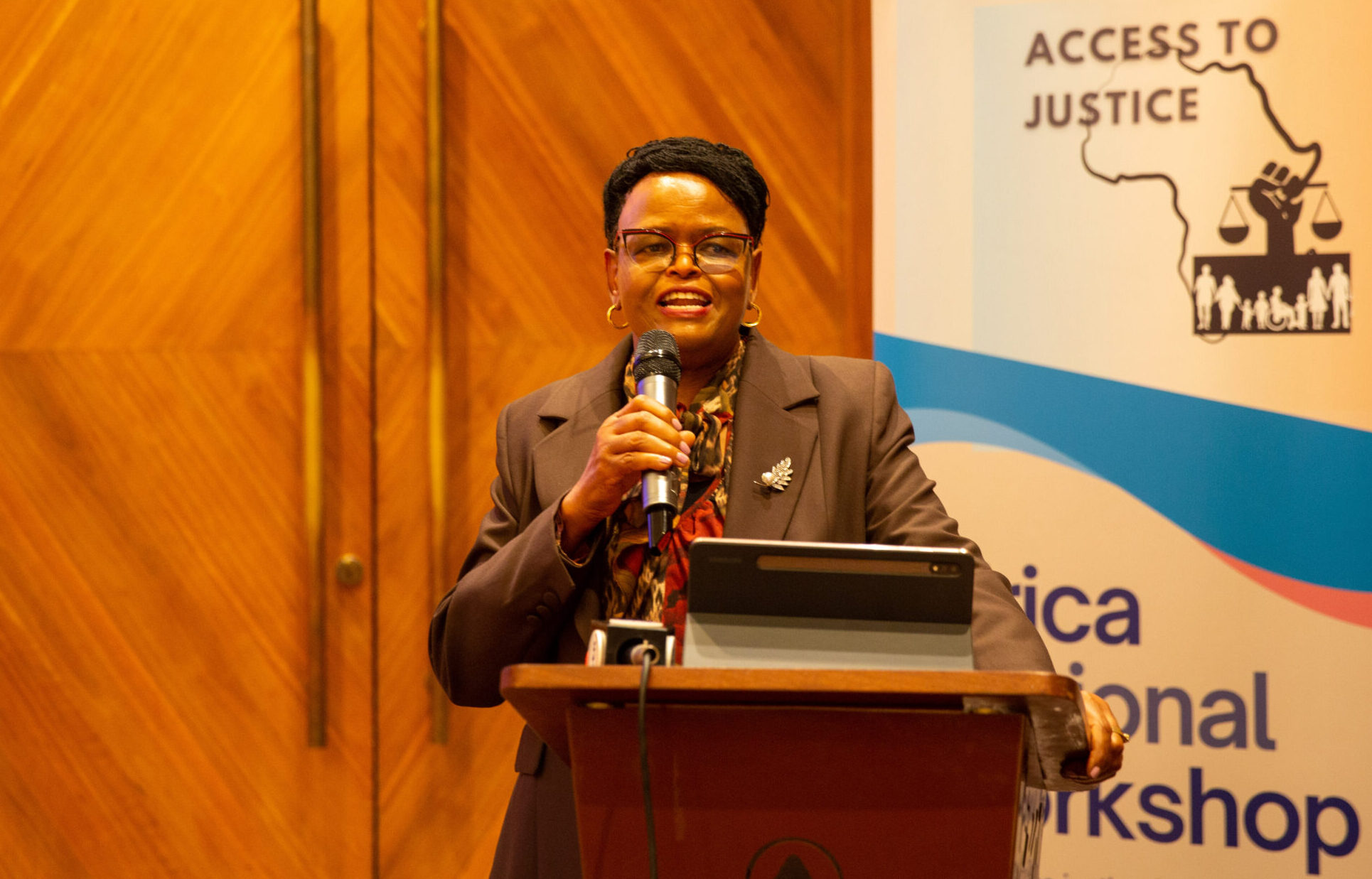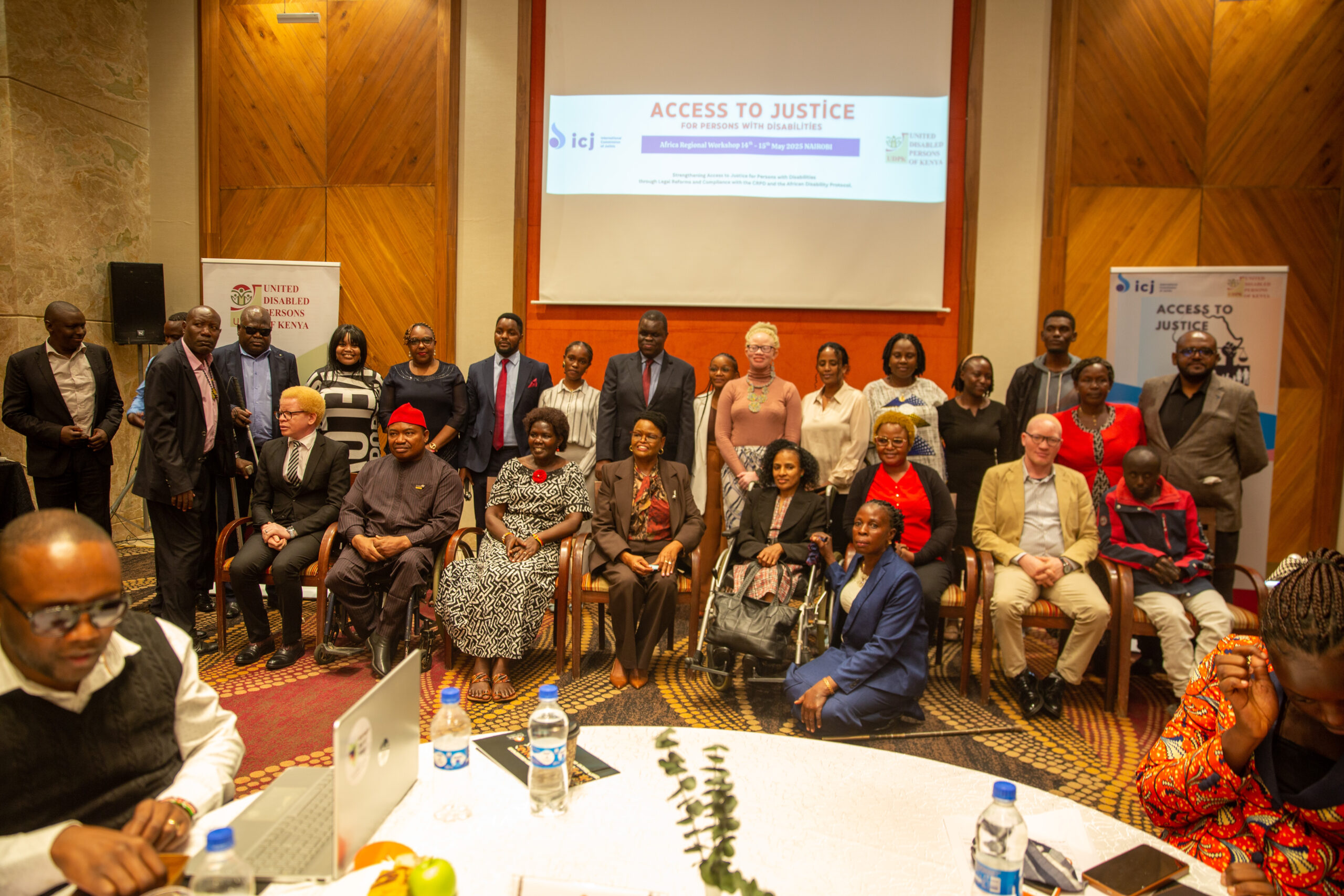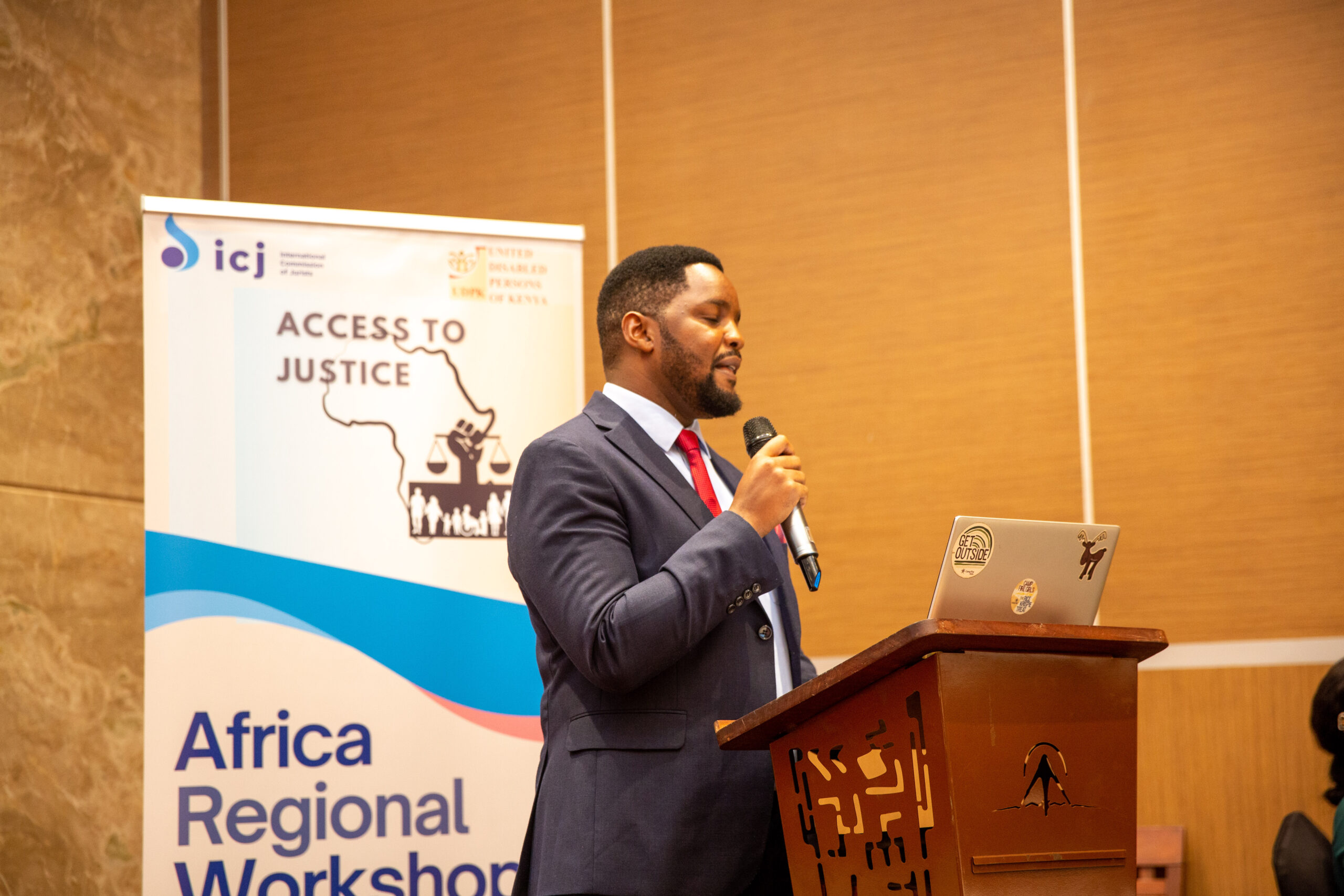All justice actors have a responsibility to ensure the protection of the rights of persons with disabilities in a manner that is inclusive and participatory.
This message was a recurring refrain heard at the Regional Workshop on Access to Justice for Persons with Disabilities, convened by the International Commission of Jurists (ICJ), in collaboration with the United Disabled Persons of Kenya (UDPK), in Nairobi, Kenya on 14-15 May.
The event, aimed at finding solutions to ensure improved access to justice for persons with disabilities in Africa, brought together over 40 participants, including human rights defenders, representatives of organizations of persons with disabilities, judges, lawyers, and experts from across the continent.
The event supports the ICJ’s broader efforts with other stakeholders to advance the implementation of the Convention on the Rights of Persons with Disabilities (CRPD) and the African Disability Protocol (Protocol) and general protection of the rights of persons with disability, through exchanges of best practices and raising of awareness of barriers hindering access to justice for persons with disabilities.
The convening affirmed that persons with disabilities should not merely be passive beneficiaries of justice reforms, but key drivers of change within legal systems across Africa. Participants underscored the importance of centering their lived experiences in legal and institutional reform efforts to ensure effective access to justice for persons with disabilities:
“African States, including judiciaries and all other justice actors, have an obligation to put in place all necessary measures to enhance access to justice for persons with all types of disabilities and ensure that these measures respect the rights, will and preferences of the individuals with disabilities.” said Wilson Macharia, Legal Adviser at the ICJ.
“It is critically important to amplify the voices and perspectives of persons with disabilities and strengthen advocacy efforts and legal interventions to secure access to justice for persons with disabilities in Africa”, he added.
Participants explored potential joint advocacy efforts supporting legal reform to enhance compliance with the CRPD and the Protocol and promoting the development of judicial standards and practices that uphold the rights of persons with disabilities who interact with the justice system.
In her opening remarks to the Workshop, the UN Special Rapporteur on the Rights of Persons with Disabilities, Heba Hagrass, emphasized the urgent need for legal systems to be inclusive and responsive to the lived experiences of persons with disabilities:
“Justice is more than courts, laws, or institutions. It is the right to be seen, to be heard, and to be believed. For persons with disabilities, access to justice is not only a human right in itself, it is a critical enabler for the realization of all other rights… States must ensure effective access to justice for persons with disabilities on an equal basis with others … Without this, justice systems risk reinforcing the very discrimination they are meant to remedy.”
“Justice … extends to administrative tribunals, community dispute resolutions, and traditional systems. They must also be inclusive, recognizing the rights of persons with disabilities to participate fully and equally,” the Special Rapporteur added.
In her keynote speech, the Chief Justice of Kenya, Martha Koome, emphasized the critical role of commitments from judiciaries in Africa in advancing inclusive justice for persons with disabilities:
 “For all persons in Africa including persons with disabilities, access to justice is a right, not a privilege. As African Judiciaries and institutions of governance at national and regional level, we must move from just the mode of accommodation to one of inclusion and transformation.
“For all persons in Africa including persons with disabilities, access to justice is a right, not a privilege. As African Judiciaries and institutions of governance at national and regional level, we must move from just the mode of accommodation to one of inclusion and transformation.
The transformation that we seek to ensure access to justice for all persons including persons with disabilities is not the work of one arm of the government – it is a shared responsibility. Therefore, I call upon African judiciaries to lead from the front in ensuring that courts are legally and morally committed to inclusion, [and] African governments to provide funds and resources in support of court accessibility, enact and amend laws to enhance access to justice, and promote legal aid for persons with disabilities.”
The workshop concluded with a shared commitment among participants to collaborate across the region in advancing legal reforms, monitoring implementation of the CRPD and the Protocol, and working to ensure that persons with disabilities continue to lead the charge for the full realization of their rights at national and regional levels.
The convening took place one year after the Protocol officially entered into force on 3 May 2024, marking a significant milestone in the continental disability rights agenda.
Background
The ICJ has repeatedly called for all African States to become party to and implement the African Disability Protocol and the Optional Protocol to the CPRD to further comprehensive protection of the rights of persons with disabilities and to strengthen access to justice across the region.
The ICJ calls on the African Commission on Human and People’s Rights to take further steps in line with its recent resolution to ensure the implementation of the Protocol and the accessibility of the structures and processes of the African Union to persons with disabilities.
Under Article 13 of the CRPD and Article 13 of the African Disability Protocol, States Parties have a legal obligation to ensure that persons with disabilities have effective access to justice on an equal basis with others. This includes the provision of procedural, age-appropriate, and gender-sensitive accommodations to facilitate their full and meaningful participation at all stages of the legal process, whether as witnesses, defendants, victims, or other parties. The International Principles and Guidelines on Access to Justice for Persons with Disabilities, adopted by the UN Special Rapporteur on the Rights of Persons with Disabilities and endorsed by the ICJ, provide a normative and practical framework to meet these obligations.
The Africa Regional Workshop is part of a global initiative by the ICJ to promote access to justice for persons with disabilities. It follows earlier regional workshops held in Bogotá, Colombia (Latin America) in September 2023, and in Kathmandu, Nepal (Asia) in November 2024. The Africa workshop builds on the insights and experiences gained from these previous events.
Watch
Keynote address by Heba Hagrass, UN Special Rapporteur on the Rights of Persons with Disabilities.
Keynote address by the Honourable Justice Martha Koome, EGH, Chief Justice, Kenya.






